Tree to Me adds your voice to existing efforts to make publishing more sustainable and encourages your publisher to act now – in the materials it uses and the energy it consumes, in its investments and emissions targets, and more – and to raise awareness among your readers as they improve their practices.
Use the ten questions and visuals below to start a conversation with your publisher about your book’s sustainability, and how you can work together to reduce its environmental impact.
- Please share the campaign online using the hashtag #TreeToMe
- Sign up to our sustainability mailing list
1. Have you signed up to Publishing Declares, the Publishers Association’s pledge on climate action, or do you have an alternative reduction strategy?
By signing up to Publishing Declares, publishers, agents, booksellers and authors pledge to take action to limit global warming to 1.5°C, protect nature and biodiversity, collaborate across industry, and to advocate for sustainability and educate others. publishingdeclares.com
2. Have you set emissions targets with the Science Based Targets initiative (SBTi), the global standard? Have you set a net zero goal?
Science-based targets provide companies with a clearly defined path to reduce emissions in line with the Paris Agreement goals. More than 4,000 businesses around the world are already working with the Science Based Targets initiative (SBTi) – publicly setting near term, long term and net zero goals, and asking their suppliers to do the same. sciencebasedtargets.org
3. Do you disclose your carbon emissions annually to the Carbon Disclosure Project (CDP), and/or are you reporting in other ways?
CDP is a not-for-profit charity that runs the global disclosure system for investors, companies, cities, states and regions to manage their environmental impacts. It is considered the gold standard of environmental reporting. cdp.net
4. Do you use 100% renewable electricity across your operations?
Switching to a renewable electricity supply is a change that organisations of any size can make without any changes to infrastructure. Many organisations are setting deadlines for their suppliers to make the change too.
5. Do you plan to use 100% recycled paper, or otherwise sustainably source the paper used for packaging, books (where possible) and across your operations? Have you stopped using plastic packaging?
According to Hachette’s research, 95% of the carbon footprint of a printed book comes from the paper it is printed on. Even FSC-approved paper contains virgin paper pulp, with resultant losses to biodiversity, soil health and indigenous communities, and increased rates of CO2.
6. Have you taken specific action to protect biodiversity, limit deforestation and reduce water usage?
Use of virgin paper in publishing has a range of negative impacts. Cutting old growth forest for plantations destroys ecosystems, including human settlements with livelihoods dependent on forests, while fast-growing plantations of trees such as eucalyptus requires irrigation and pesticides, while the disruption of soil releases CO2. We all have a responsibility to minimise our impact, whether as individuals or organisations. Publishers have a duty to play a major part in this.
7. Do you use foils and finishes or lamination? What proportion of these can be recycled? Do you offer more sustainable formats such as trimmed sizes?
The more complex the range of materials used in a book, the more energy-intensive its production and end-of-life recycling will be, with many common finishing materials not recyclable at all. Print book production can be a circular economy, but only if publishers, designers, printers, authors and others work together to ensure each volume’s lifespan is sustainable.
8. Does your organisation have a corporate governance system to hold it accountable for sustainability? Do you provide staff sustainability training?
A commitment to organisation-wide change needs to be driven from the top. Many commercial organisations today embed responsibility for sustainability at senior management level by setting sustainability performance indicators that impact senior staff bonus payments.
9. Do you disclose any of your organisation’s investments (including employees’ pensions) in the fossil fuel industry?
While the level of investment in renewable energy continues to rise, so too does investment in fossil fuels as energy use worldwide increases. Organisations and individuals with any kind of investment can make a difference here – by divesting organisational funds and working with employees to invest their pension funds sustainably.
10. How can you help me communicate this prominently to my readers?
We want to feel proud of our books – not only our words and artwork, but also the physical volumes. If our work is printed and distributed sustainably, by a publisher committed to net-zero targets, this is something we want to share with readers to engage and educate.
A role for publishers
Every business has a role to play in limiting global warming to 1.5°C above pre-industrial levels, and publishers are no exception. Tree to Me adds authors’ voices to efforts to achieve net zero in the publishing industry.
We are reminded almost daily of the threat of climate change.
Books are part of the problem, and while the publishing industry is beginning to work towards more sustainable practices, change isn’t happening fast enough. From deforestation to produce paper, to packaging and carbon-hungry transportation and shipping, current manufacture and supply chains are unsustainable. The paper and pulp industry alone accounts for the same level of greenhouse gas emissions as aviation.
Tree to Me enables a dialogue between authors and publishers, signposting good practice and ensuring that authors’ voices are heard as the publishing industry evolves.
The past few years have seen the launch of several excellent industry schemes, including Publishing Declares from the Publishers Association, the Book Journeys Project and Zero Carbon Toolkit from the Independent Publishers Guild, and BIC’s Green Book Alliance. The Society of Authors is a founding partner in the Sustainability Industry Forum, a collaboration with the Association of Authors’ Agents, BIC, the Booksellers Association, Independent Publishers Guild and the Publishers Association – the first cross-industry initiative designed to tackle the negative impact of the book business, opening essential lines of communication between authors, publishers and booksellers.
Tree to Me aims to support and complement those initiatives.
A role for authors
How can authors affect change when the books their words are printed on are not sustainable?
By asking your publisher Tree to Me’s ten questions, you can begin a dialogue about the environmental impact of each stage of your book’s production. It might seem like a small step, but with many authors asking, we hope that the demand for sustainable practices will be heard across the industry. If you self-publish, where appropriate, you can ask these questions of your supplier.
Tree to Me will help you identify with your publisher, confidentially, the current environmental impacts of your book’s production, while signposting measurable sustainable changes.
As readers become increasingly environmentally conscious, authors and publishers talking publicly about sustainability in publishing will help them make more sustainable book purchases. The more this happens, the greater the demand for good environmental publishing practices.
Climate change affects us all. Together, we can achieve the sustainable production of an indispensable weapon against it – literature.
Information for publishers
Tree to Me complements the vital work already being done to make the publishing industry sustainable.
Our aims align with existing campaigns such as Publishing Declares, supporting authors to encourage their publishers to become climate literate. In fact, a primary function is to drive traffic to Publishing Declares, so that more publishers might sign up.
By encouraging open conversations on sustainability between authors and publishers, Tree to Me provides a missing link in these efforts. The true environmental impact of books can often seem opaque. Sharing information based on the ten questions will help raise awareness, educate, and promote positive sustainable change in publishing.
Tree to me is not an adversarial campaign. It is not about authors making demands or accusing publishers of bad practice; the answers to the questions are not shared and the questions are essentially a vehicle for discussion. Quite the opposite, the campaign will give authors and publishers the opportunity to celebrate where sustainable practices are happening and to showcase that they are working together to improve their book’s sustainability.
We realise that the questions are presented as a one-size-fits-all, when in fact publishers come in many shapes and sizes. For smaller publishers, some of the changes proposed may not be feasible due to financial or administrative limitations. Where possible, we will highlight questions that authors might want to reword for smaller publishers.




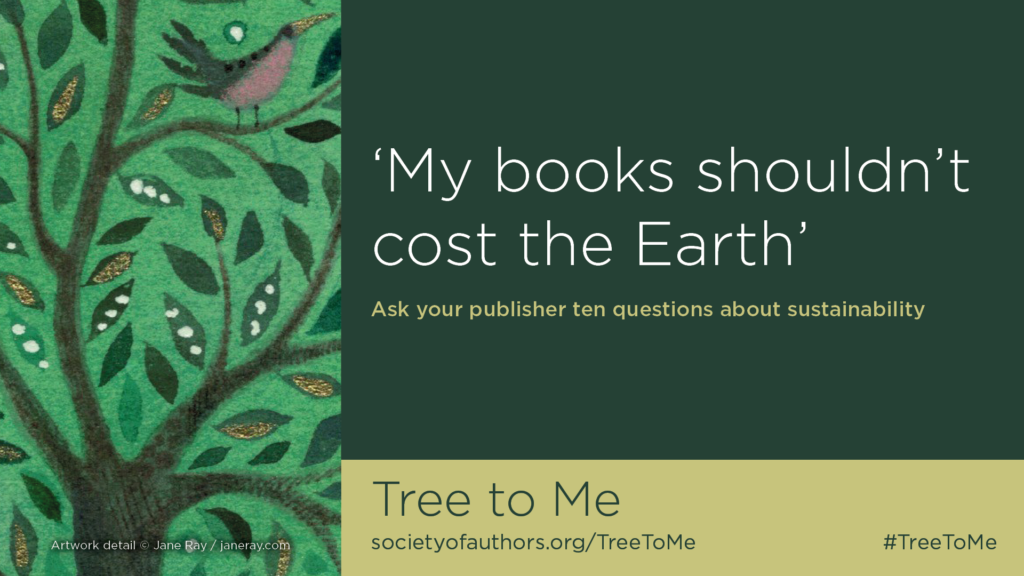

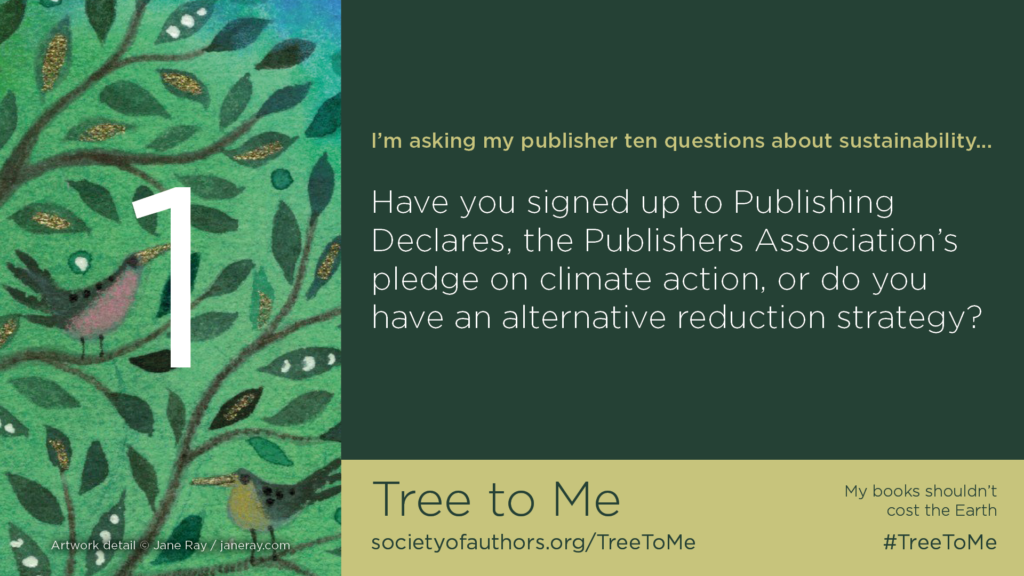
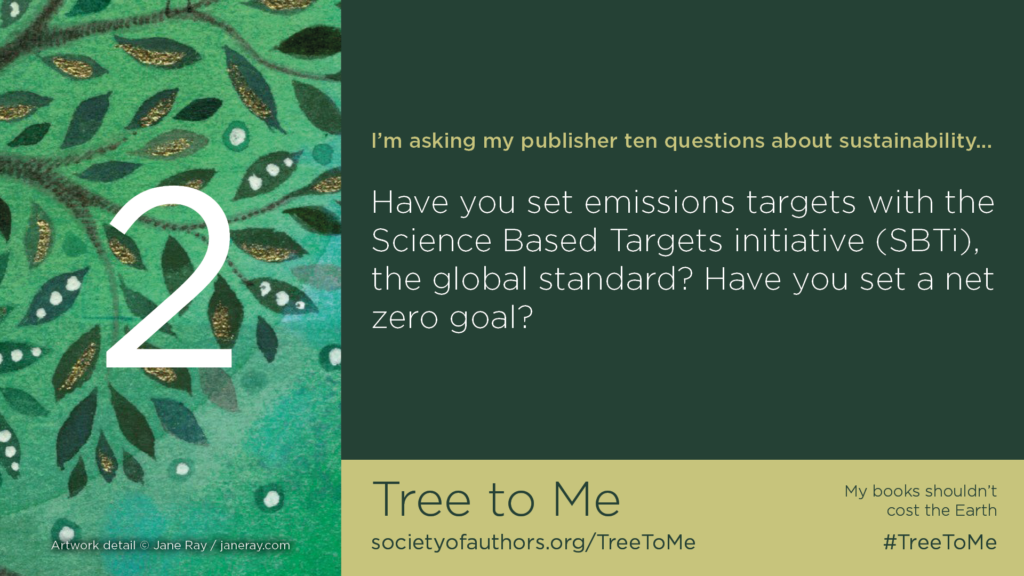
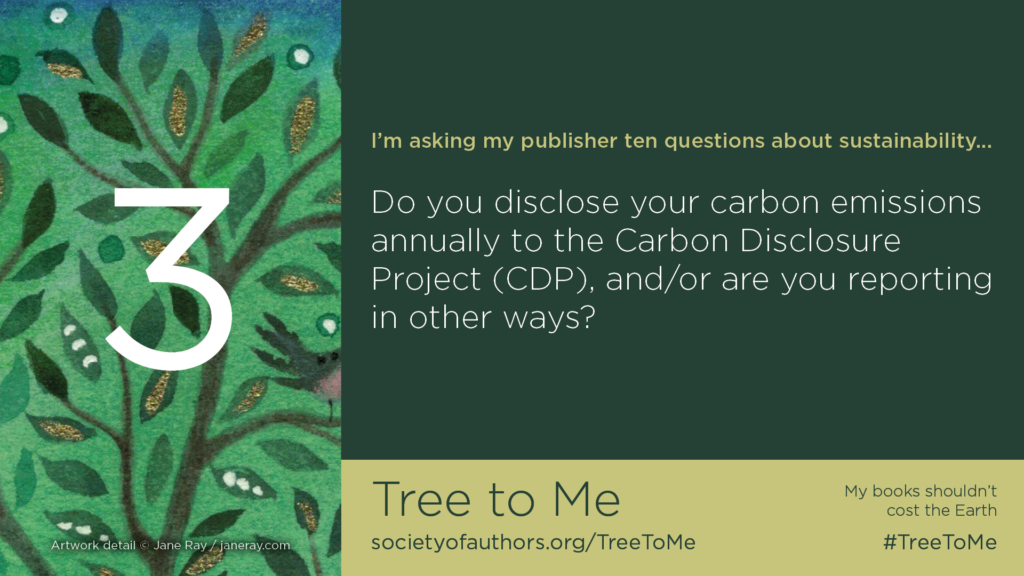
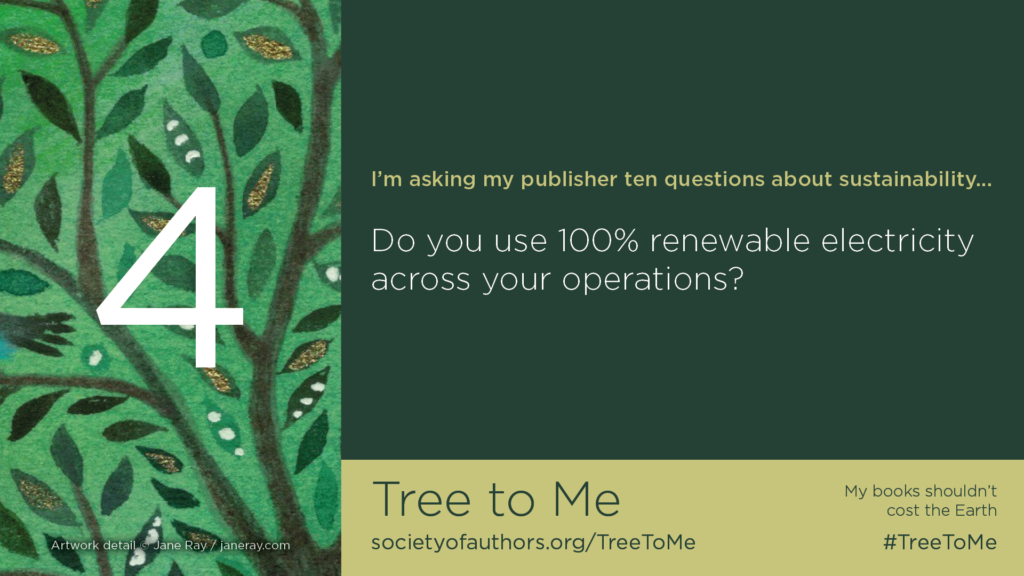
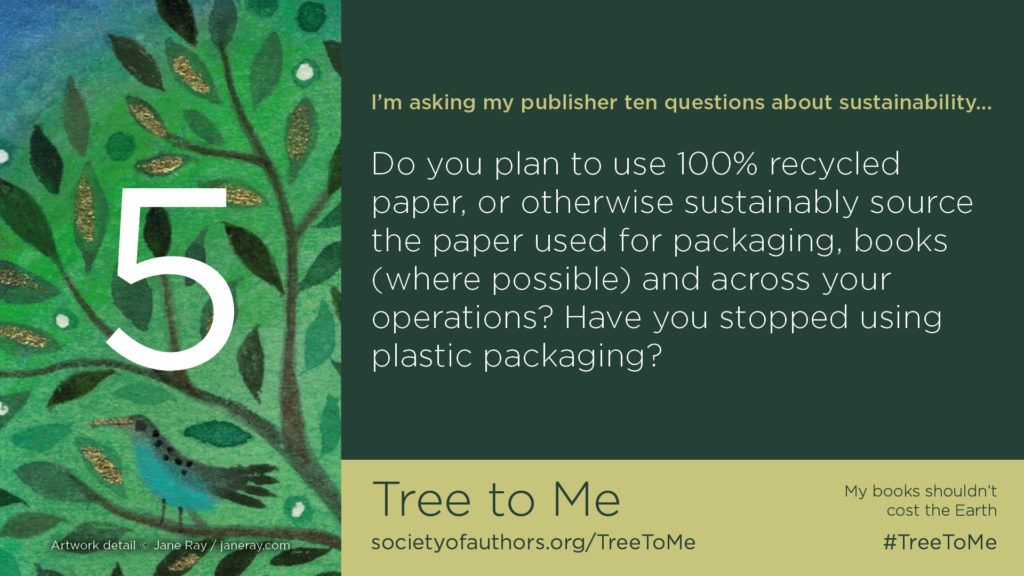
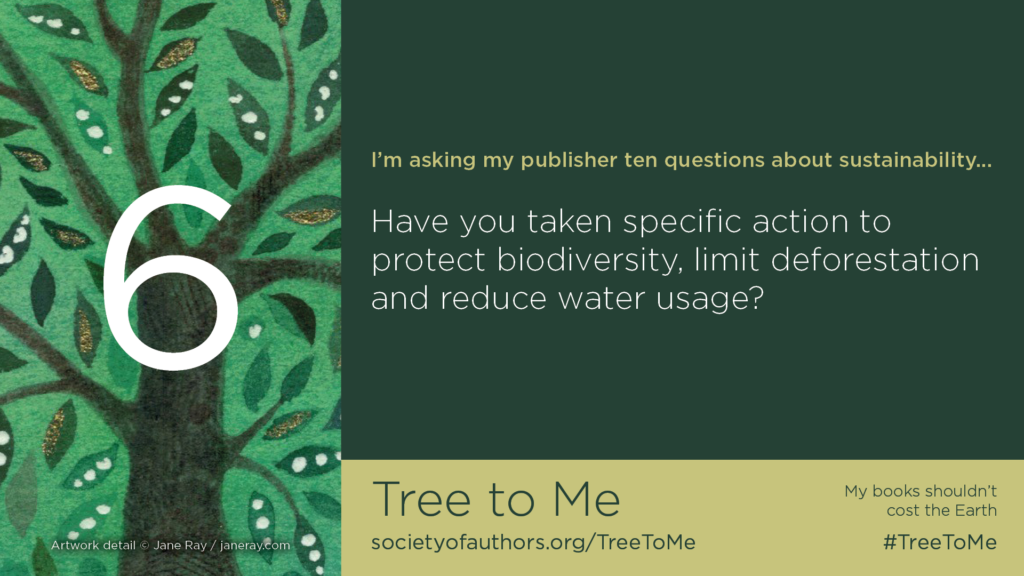
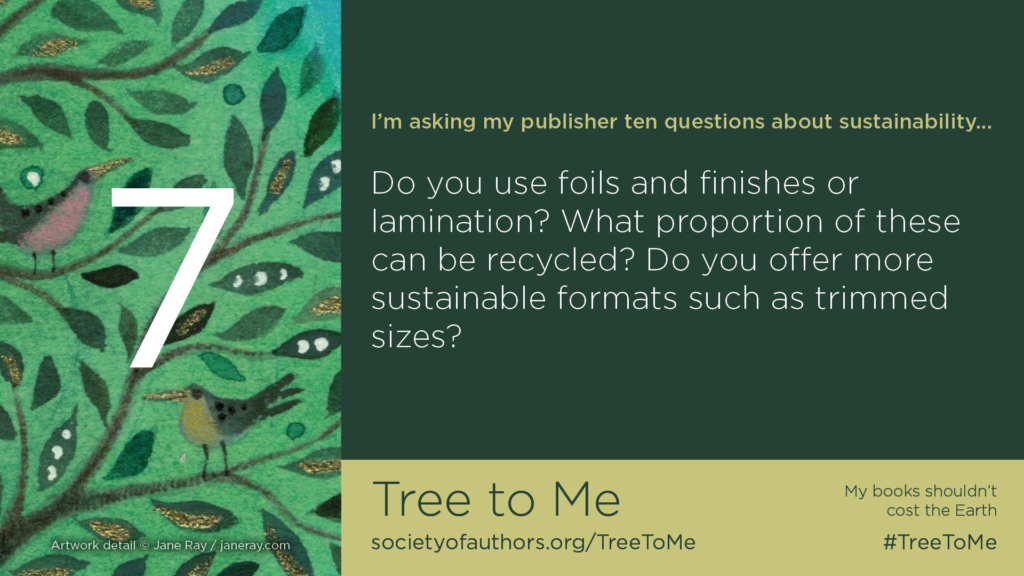
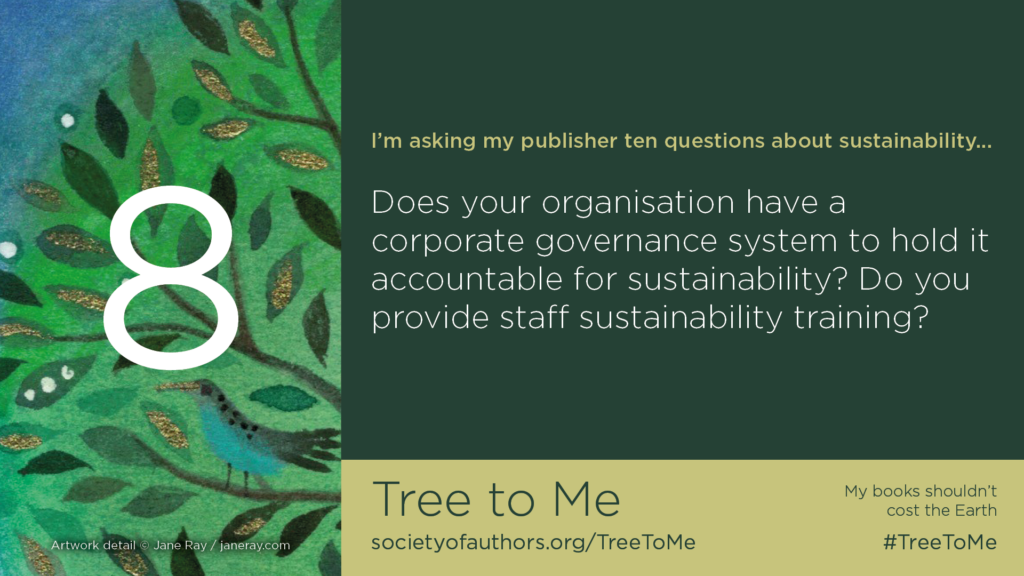
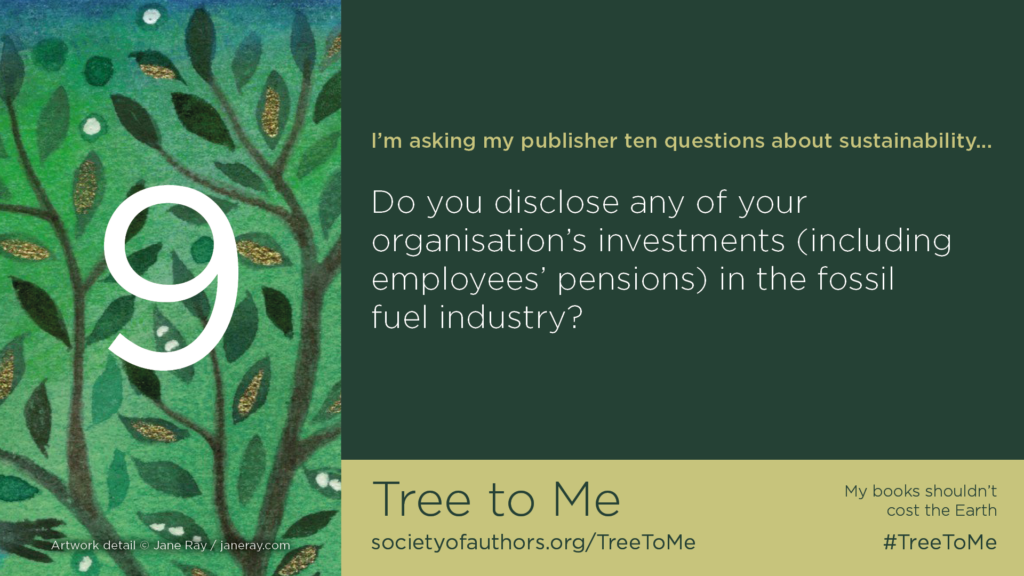
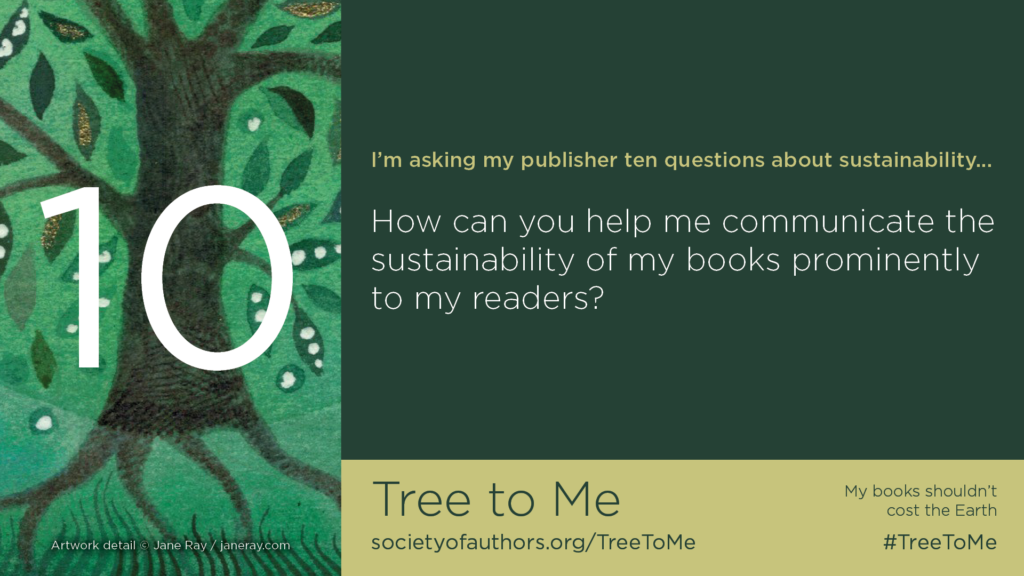
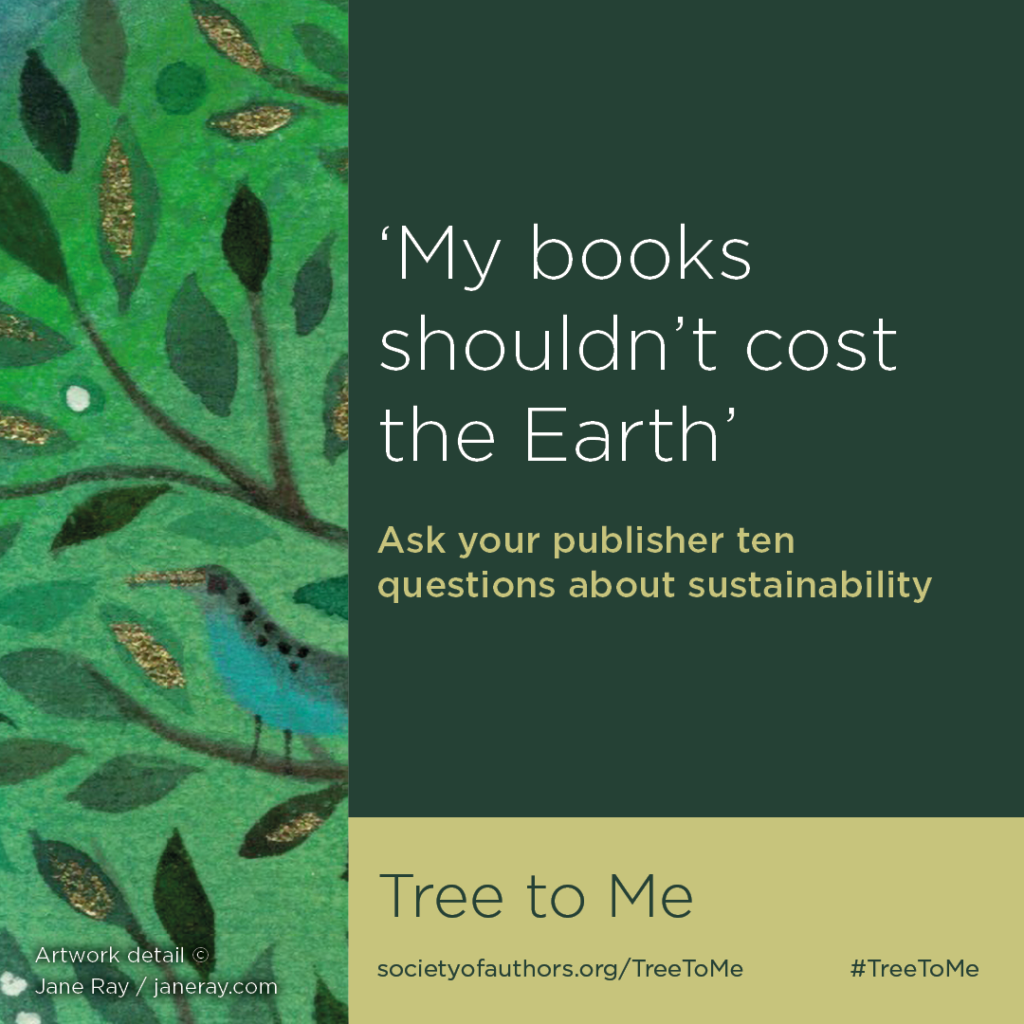
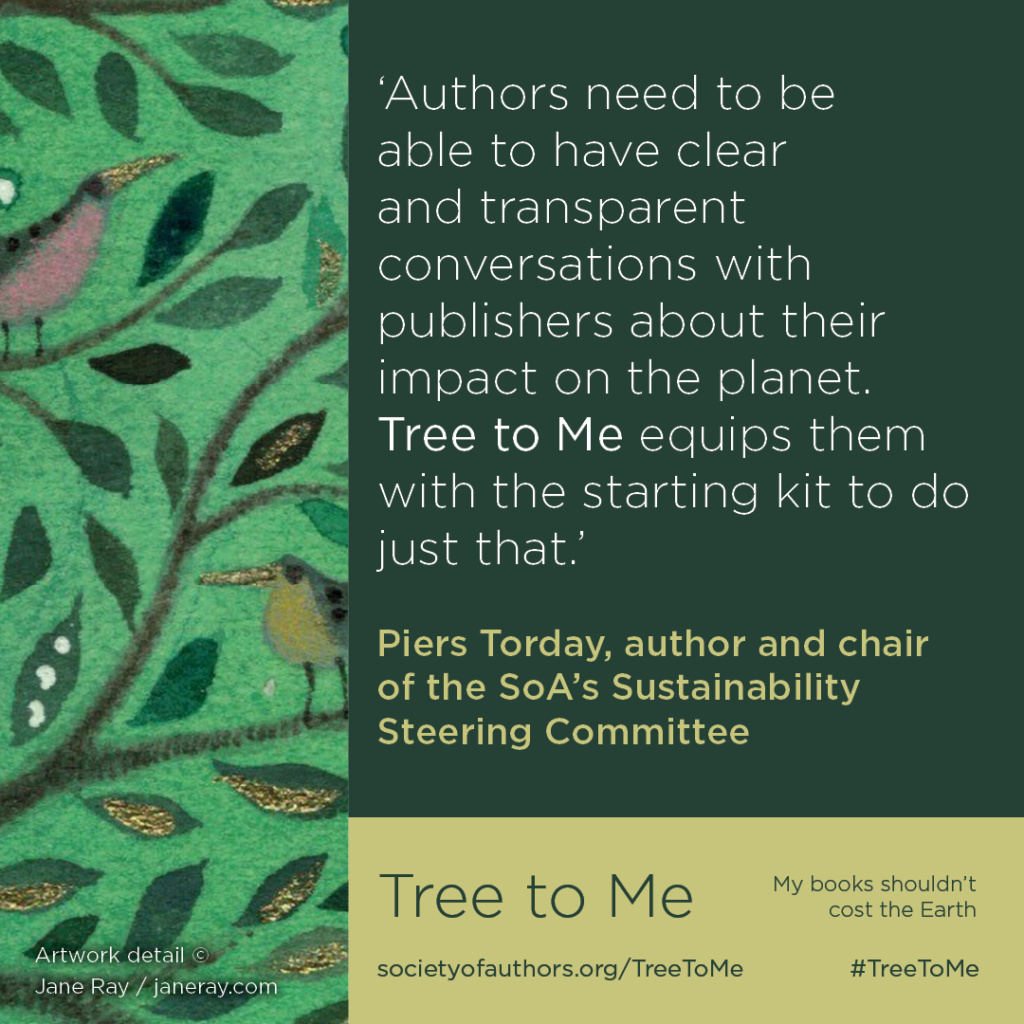
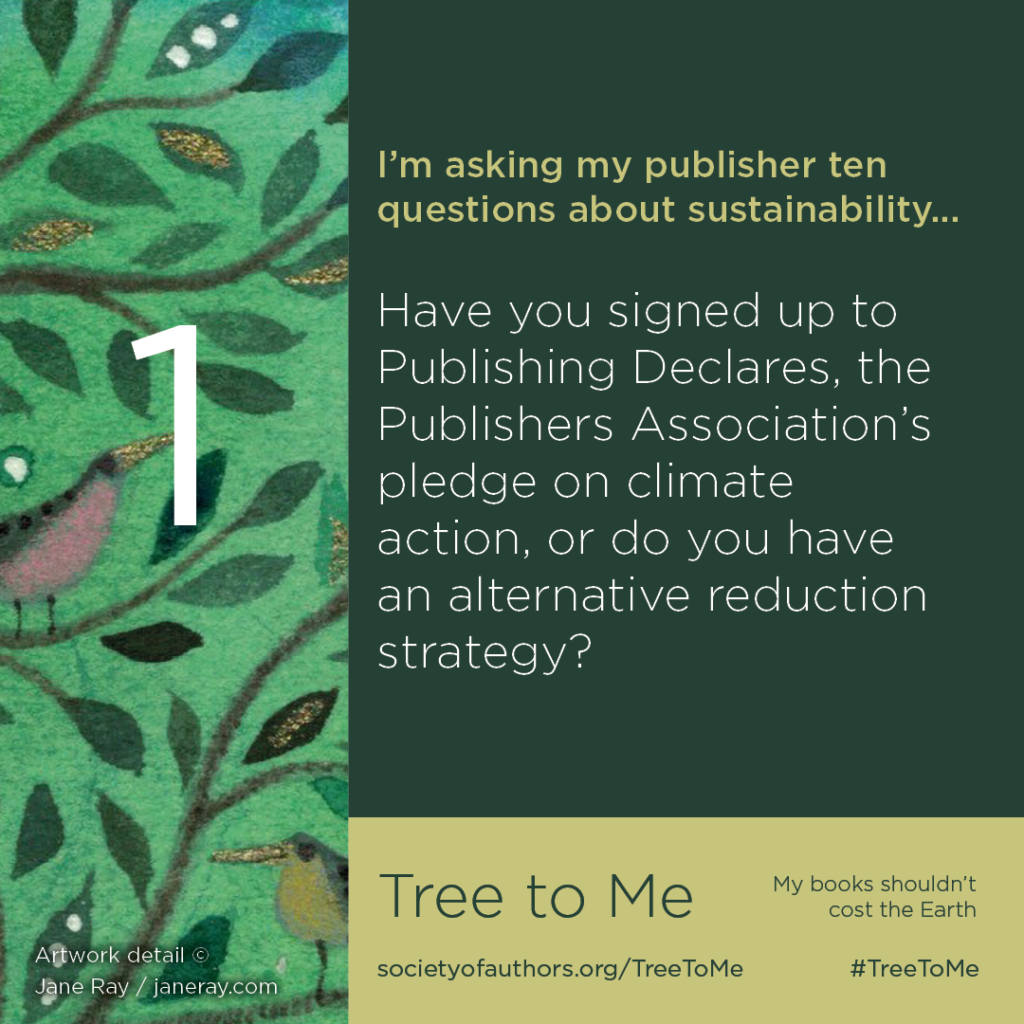

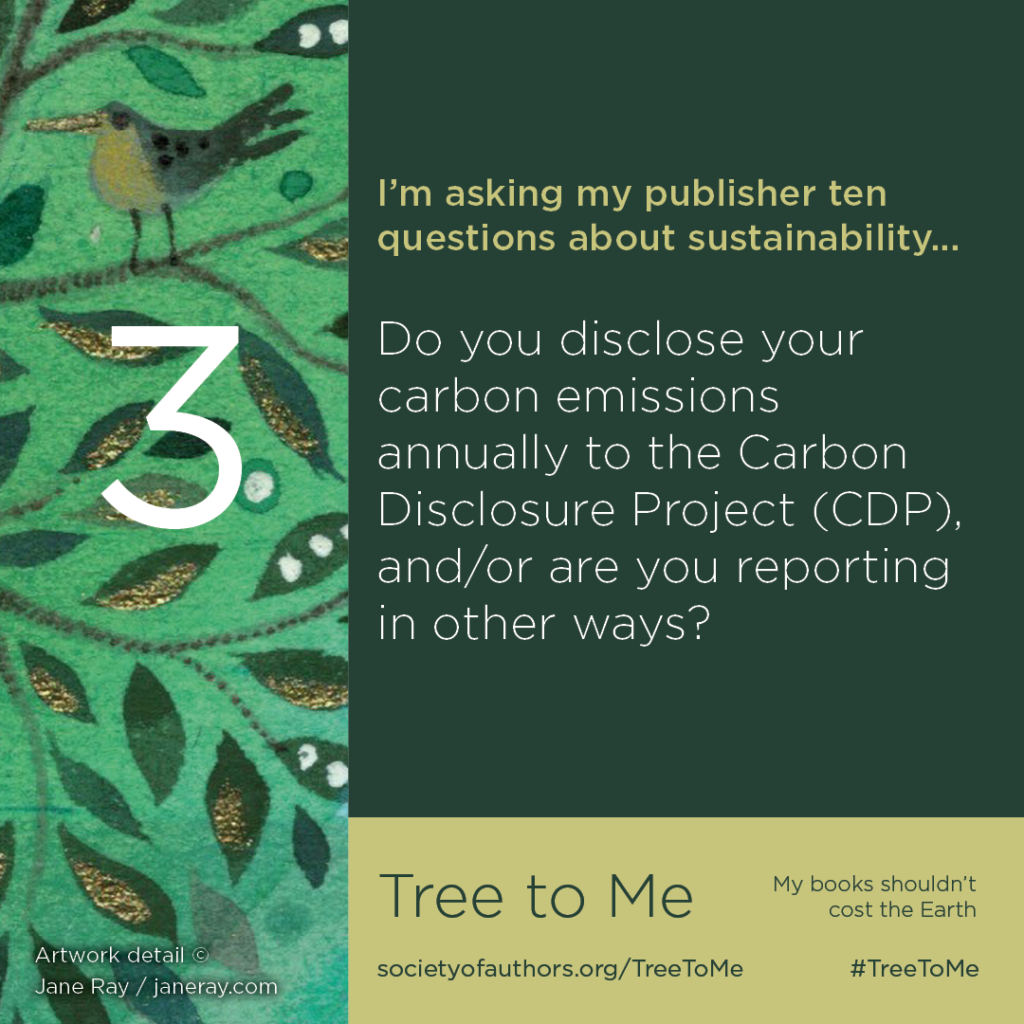
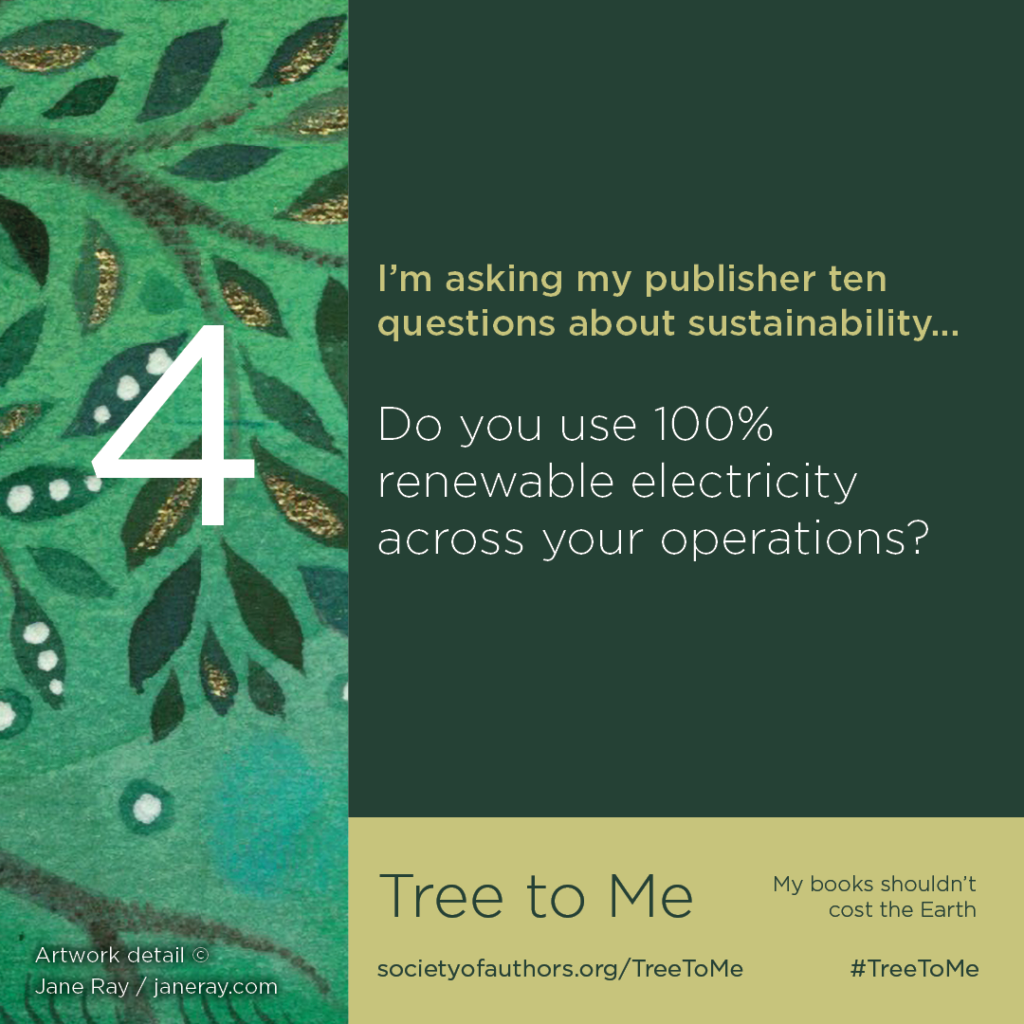
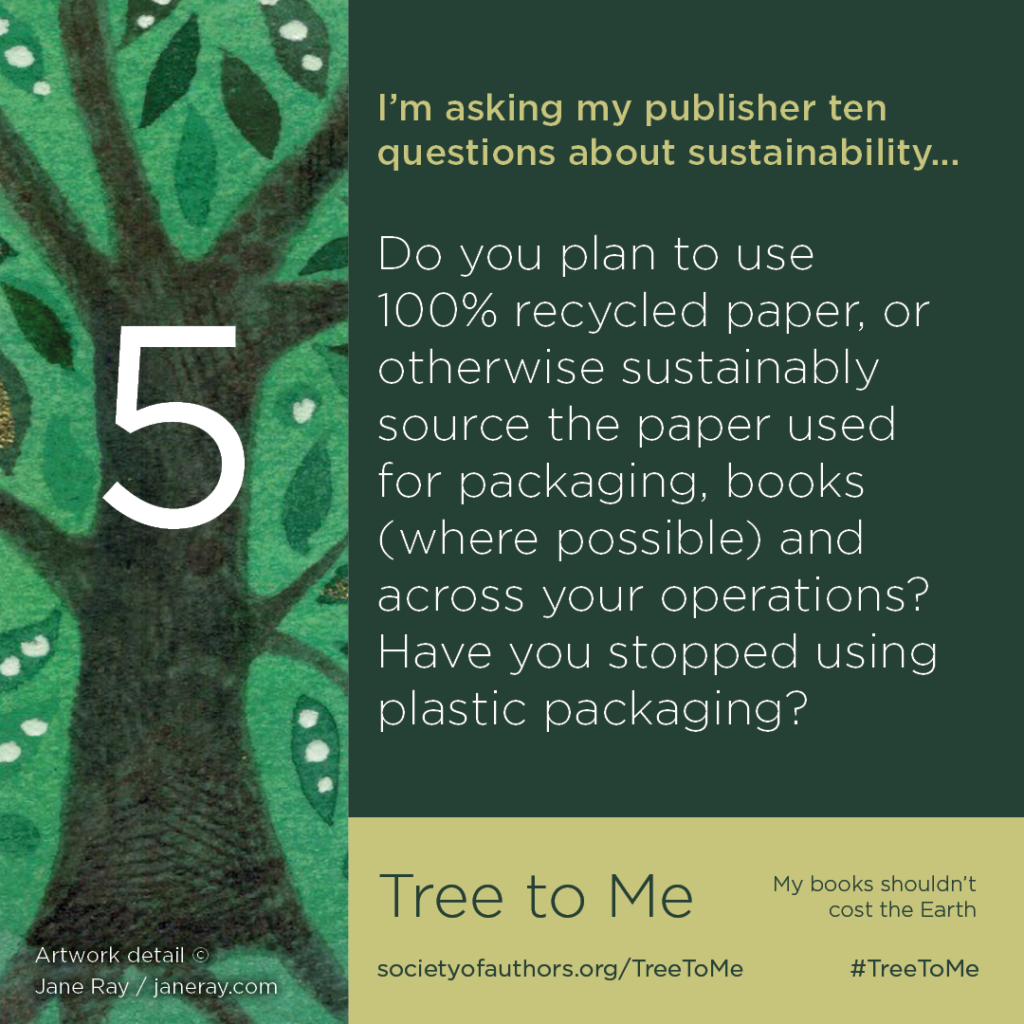
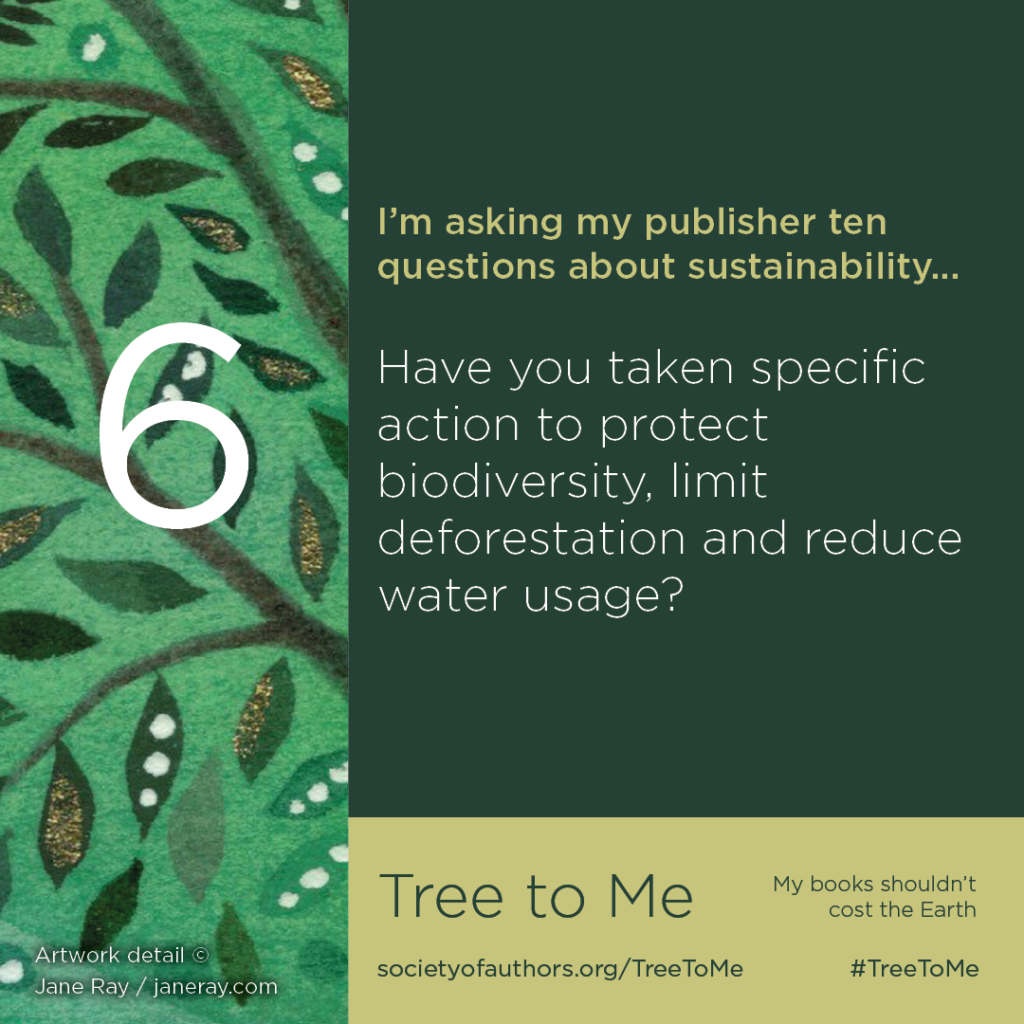


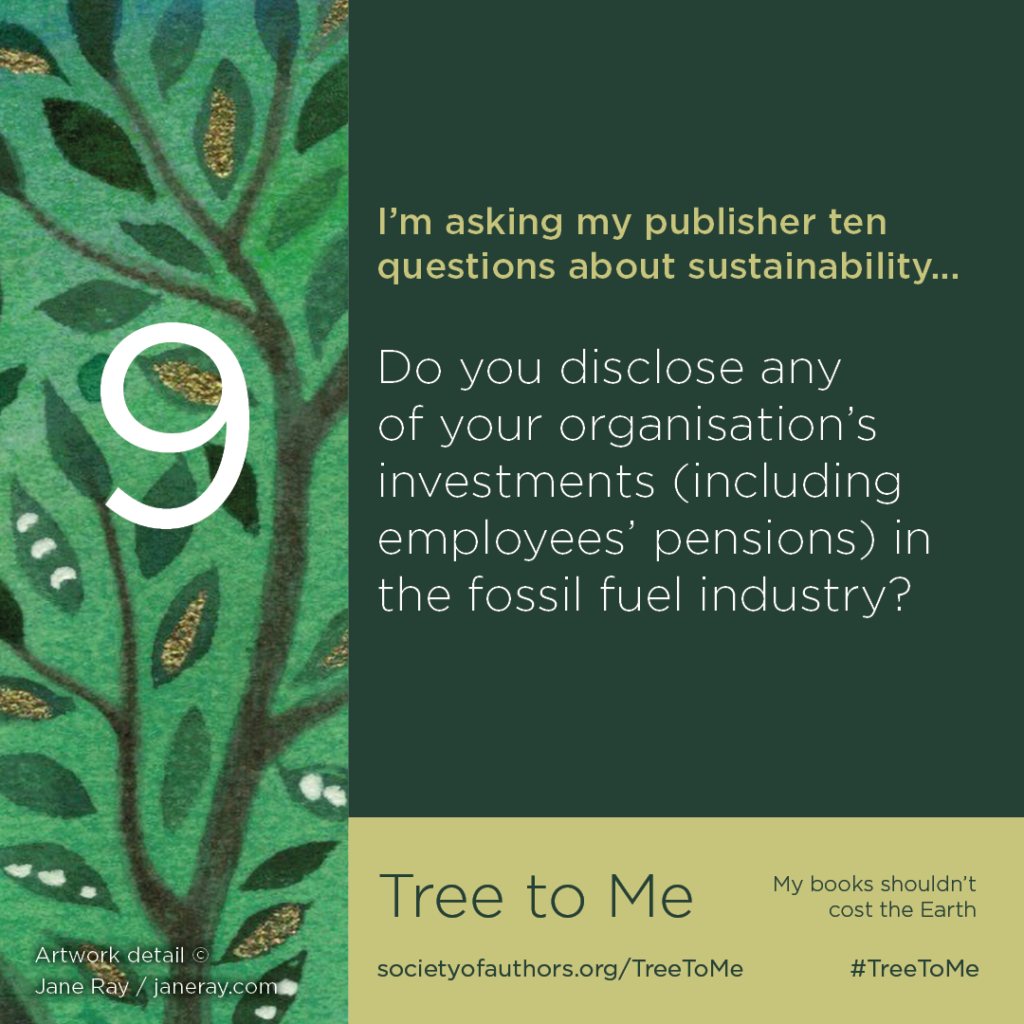
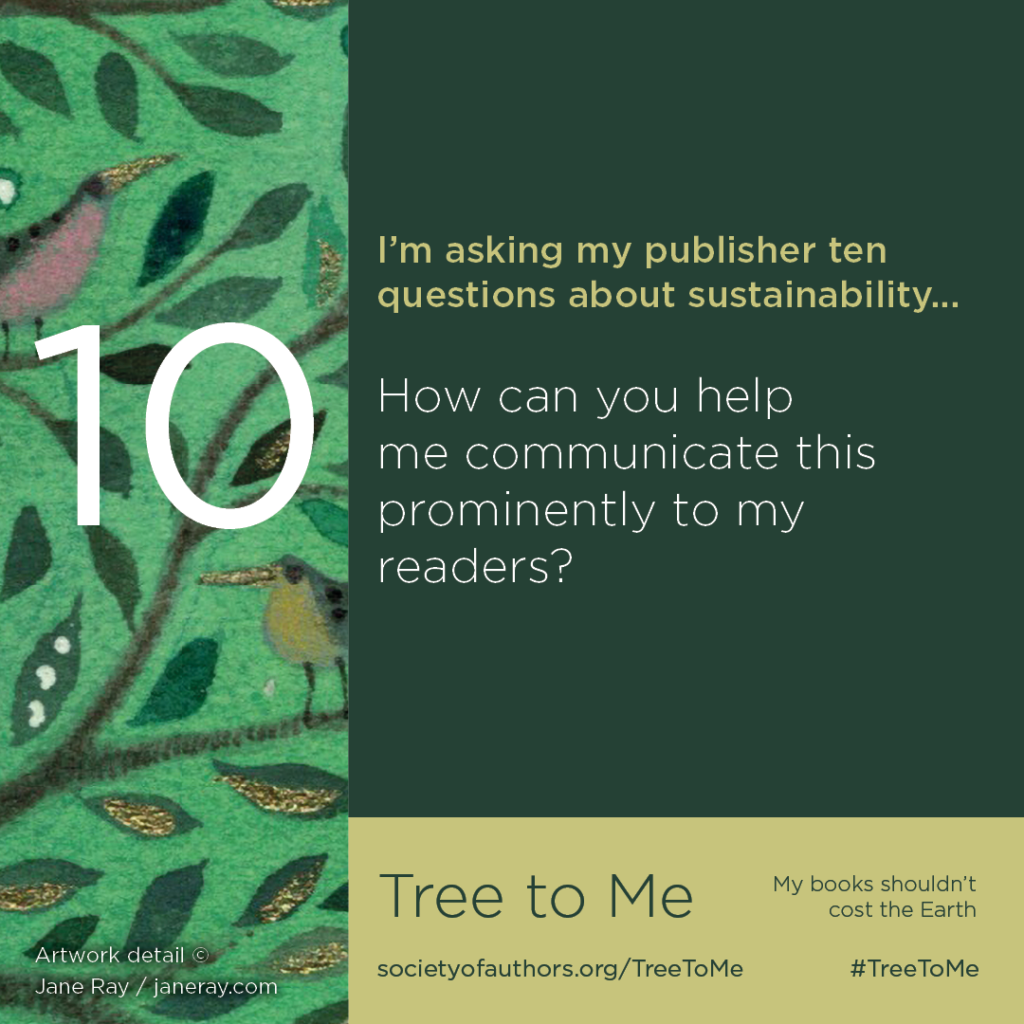
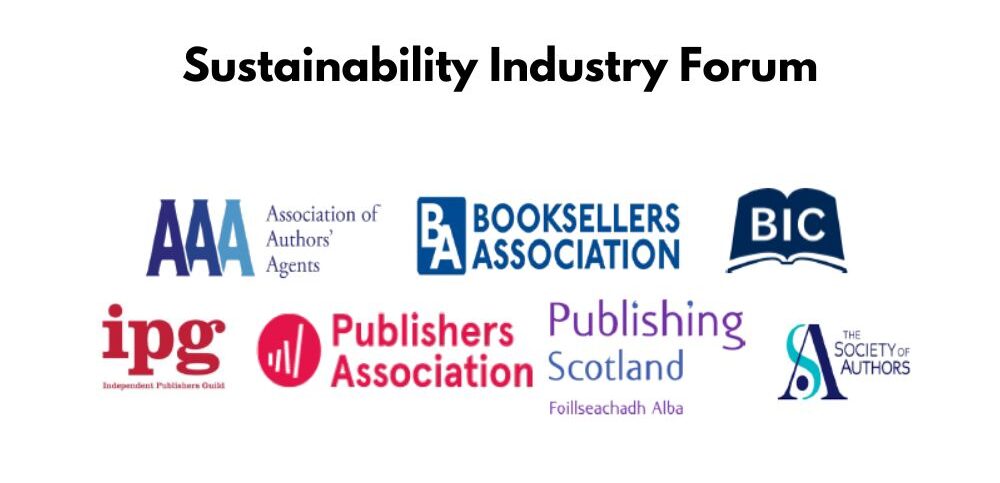
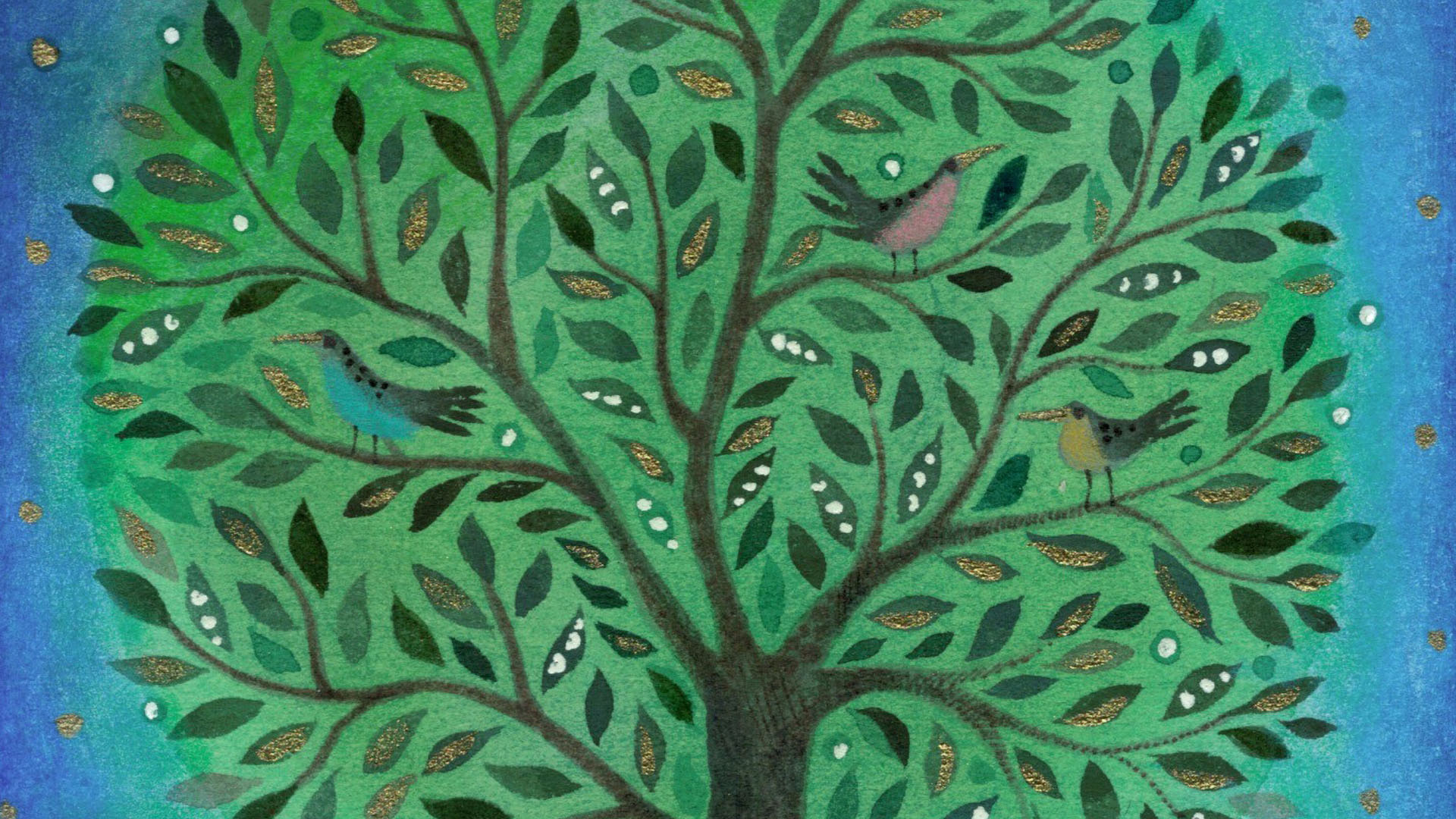

Hello, this is good. I’m an author AND a very small indie publisher, using Ingram Spark to publish a small number of books. I do POD and laminate covers, not dust jackets (which I understand is good), and future books will be paperback only. Do you have any suggestions to improve, for me? I have asked IS about FSC paper in the past and they weren’t terribly helpful, and I will ask them again about recycled paper. Their packaging is cardboard boxes when I order copies.
I just read a hardback book of about 300 pages. It had 50 chapters between each chapter was an average of one blank page that’s 25 pieces of paper that did not need to be in that book multiply that by 100,000 copies. Multiply that by X number of publishers and you destroyed an awful lot of trees! I also recently read a book published in 1941. They delineated chapter breaks by a couple carriage returns, and an indented chapter number. They were facing a Hitler crisis. We are facing a climate catastrophe. It did not hurt my reading of… Read more »
Brilliant stuff! 😁🎉 I’d love to see you guys champion the publishers doing a good job at addressing these areas (it’s important we celebrate those taking steps/making improvements!).
Great – is there a way to download the questions in a format that I can send to the publisher – it seems to be in the Members area currently!
Dear Anne,
We’ve updated the page to include a downloadable word document containing the questions. Please do let us know if you have any issues accessing it.
Thanks,
Teddy
Yes yes yes yes YES! Thank you SoA. At DIRT poetry we set out to showcase how publishing can change – mainstream poetry publishing could radically shift too. It can be done. It must be done 🙂 Tree to Me is so encouraging.
Brilliant. Am going to be discussing this with publisher asap.
So excited this is going live. Thanks SoA for giving us a coherent voice in the debate on how to make publishing fit for the future.